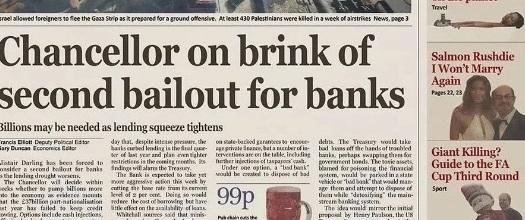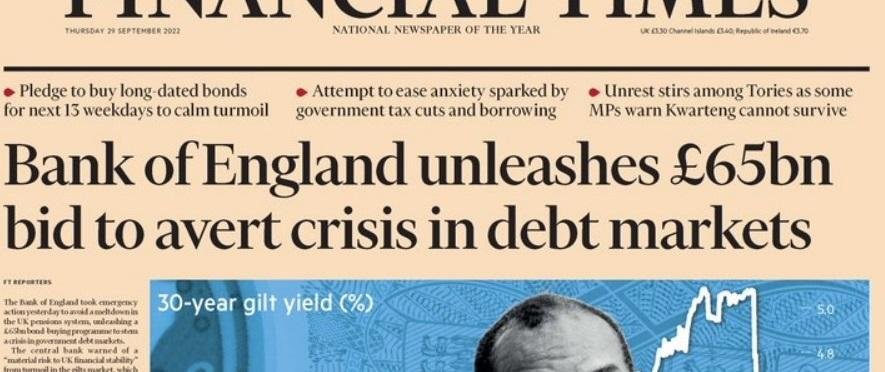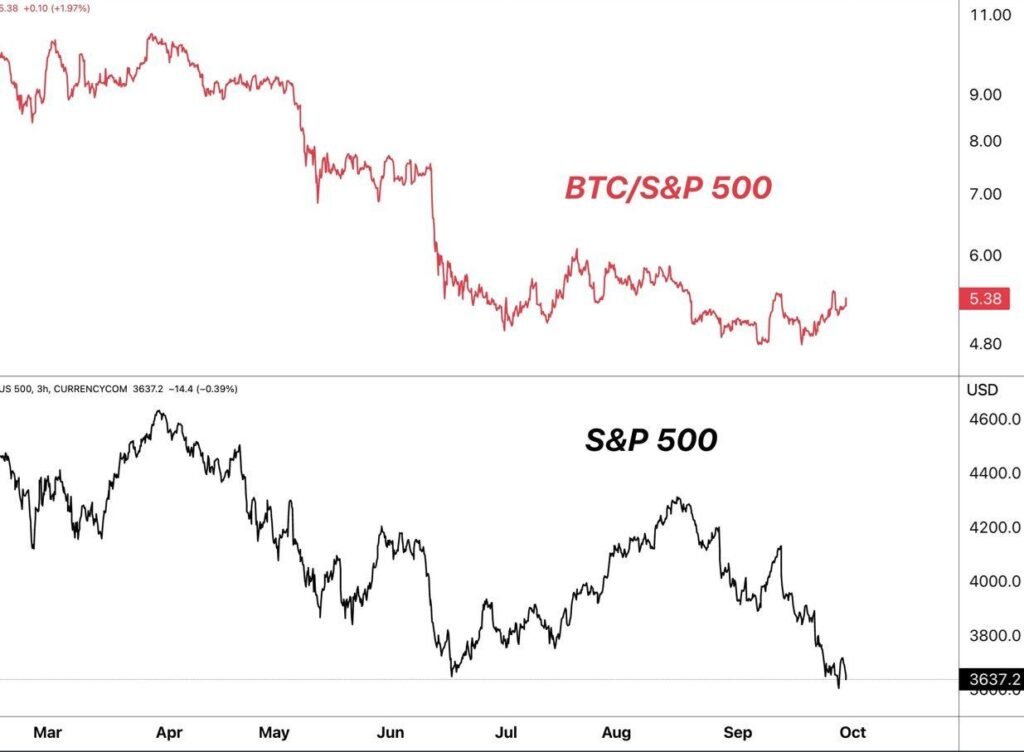In January 2009, Satoshi Nakamoto provided a hint as to the motive for Bitcoin. Embedded in the genesis block was the now famous Times headline, “Chancellor on brink of second bailout for banks”. On Tuesday the 27th of September the headline could have been copy/pasted as the Bank of England pledged billions of pounds to buy government bonds. A liquidity crisis with a plunging pound and a return to quantitative easing: activate money printer. History may rhyme instead of repeat but this weeks events revealed the systemically broken global fiat system that Bitcoin was invented to solve.


And the UK is just the beginning. Globally the economic outlook is grim. Investors scramble for liquidity. Equities, bonds and foreign currencies are abandoned in favor of the global reserve dollar. Respected investor Stanley Druckenmiller opined at the prolonged nature of the downturn stating
“I would be stunned if we didn’t have a recession in 2023. I don’t rule out something really bad. The stock market would be at a relatively similar level in a decade to what it is now.”
Source: Bloomberg
With all metrics pointing to a prolonged recession, what are the implications for Bitcoin.
This time its different
Despite being the ultimate risk-off asset, Bitcoin, at least for now, correlates closely to equity markets. Traditional market participants tend to view it as a tech stock.
And it is true that the bitcoin price action does track closely with such assets. Many observers consider the “de-coupling” of bitcoin from these markets as inevitable.
The reason being, in our fiat ponzi system, each financial crises is progressively worse than the last. From the 1970’s through the Great Recession to today, the sovereign debt burden grows each time and the options available to governments shrink.
As bad as 2008 was, the situation today is far worse: government bonds, (traditionally the safest asset) falling 20% faster than equity markets is a scary precedent.
In any crisis, slowly, than all at once, investors scramble for liquidity. As each meltdown is worse than the last, faith in government and central banks erodes: options to store your money reduce. As Bitcoiners, we opt out of a rigged fiat banking system in favor of open-source verifiable code.
The decoupling of Bitcoin will be the signal that institutions and retail investors have run out of options for a safe haven asset: there will be no-one left standing. No-one except a non-custodial bearer asset with no counter-party risk. It is less that traditional investors will look at bitcoin in a new light, than the worsening fiat casino can provide no other options.

Bitcoin is facing its first prolonged recession. In March 2020 covid panic selling caused a price dump and rewarded those who held. It is often stated that “Bull markets make you money, Bear markets make you rich”, and for Bitcoin being, admittedly, a relatively young asset, this has been consistently the case.
The current accumulation period will be longer, more intense, and if one can hold enough cash to avoid becoming a forced seller, an unprecedented opportunity. Of course, as the bitcoin winter proves longer than expected, there will be pressure from bitcoin holders converting to cash.
Conversely, more investors will seek inflation protection in a non-confiscatable asset. However, the coming economic collapse could be of an intensity and duration to act as the tipping point for Bitcoin. And when it comes it will be slowly, then all at once.










